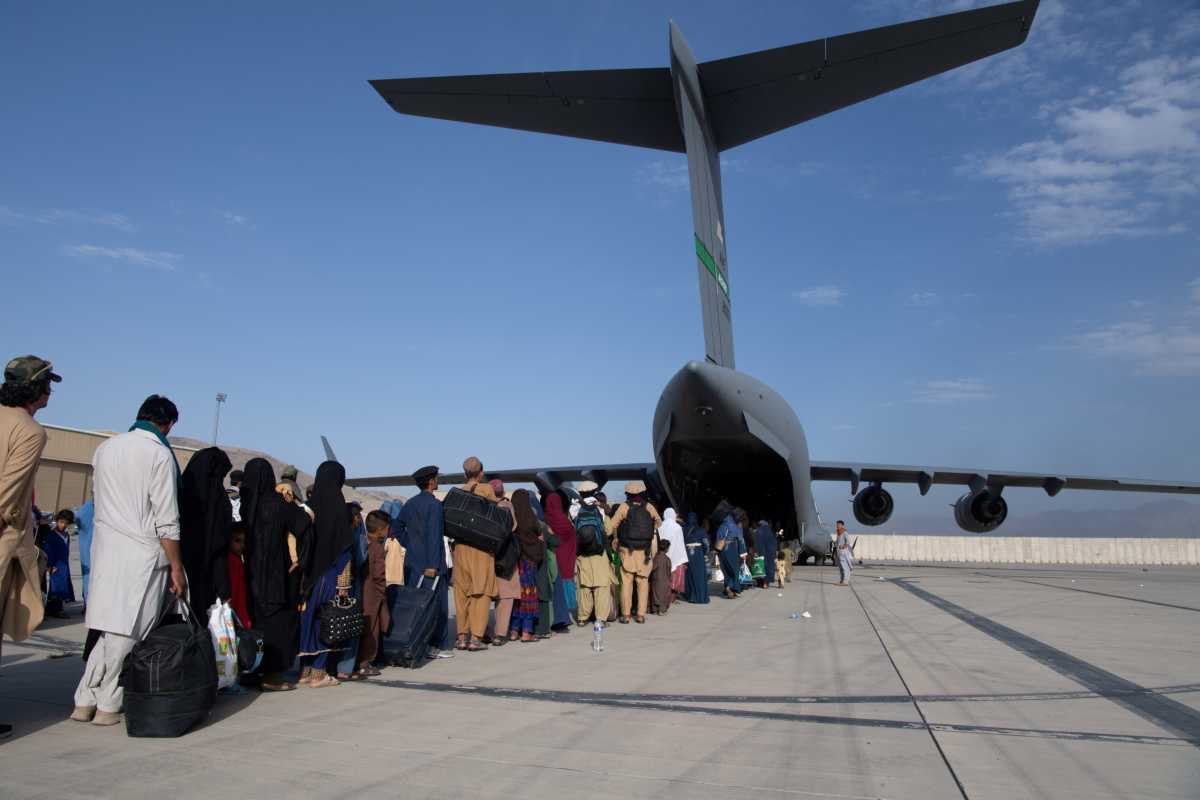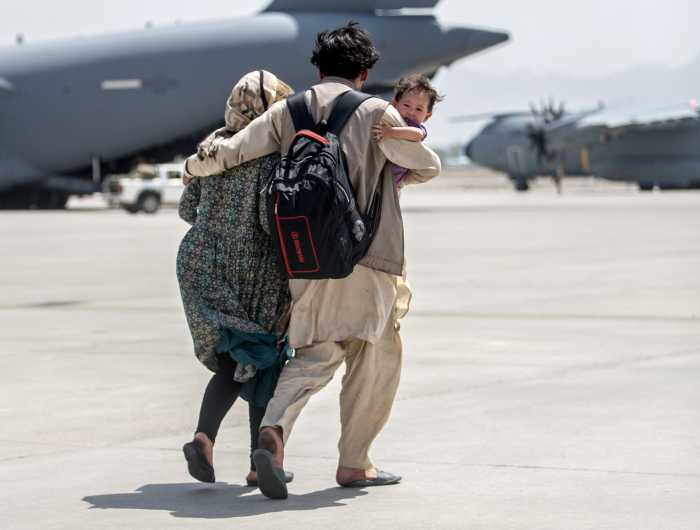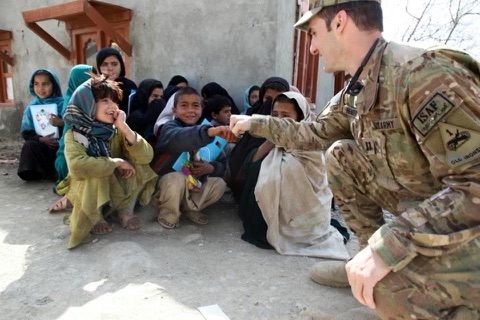The United States and allies urged Afghans to leave Kabul airport on Thursday, citing the threat of an attack by Islamic State militants, as Western troops race to evacuate as many people as possible and get out themselves by Aug. 31.
The deadline has intensified pressure to complete the evacuations of tens of thousands of foreigners and Afghans who helped Western countries during the 20-year war against the Taliban.
Canadian forces halted their evacuations of around 3,700 Canadian and Afghan citizens on Thursday, saying they had stayed as long as they could. U.S. and allied troops also have to plan the logistics of their own withdrawal.
“We wish we could have stayed longer and rescued everyone,” the acting chief of Canada’s defense staff, General Wayne Eyre, told reporters.
In an alert on Wednesday, the U.S. Embassy in Kabul advised citizens to avoid traveling to the airport and said those already at the gates should leave immediately, citing unspecified “security threats”.
British Armed Forces Minister James Heappey said intelligence about a possible suicide bomb attack by IS militants had become “much firmer”.
“The threat is credible, it is imminent, it is lethal. We wouldn’t be saying this if we weren’t genuinely concerned about offering Islamic State a target that is just unimaginable,” Heappey told BBC radio.
A source at Italy’s Defense Ministry said shots were fired at an Italian military transport plane as it left Kabul. But an Italian government source, quoting intelligence reports, later said the shots had been fired in the air to disperse crowds at the airport, and not at the plane.
A Western diplomat in Kabul said areas outside the airport gates were “incredibly crowded” again despite the warnings.
Australia also issued a warning for people to stay away from the airport while Belgium ended its evacuation operations because of the danger of an attack. The Netherlands said it expected to carry out its last evacuation flight on Thursday.
The warnings came against a chaotic backdrop in Kabul, where the massive airlift of foreign nationals and their families as well as some Afghans has been under way since the day before the Taliban captured the city on Aug. 15, capping a lightning advance across the country as U.S. and allied troops withdrew.
‘RISKING LIVES’
The Taliban, whose fighters are guarding the perimeter outside the airport, are enemies of the Afghan affiliate of Islamic State, known as Islamic State Khorasan (ISIS-K), after an old name for the region.
“Our guards are also risking their lives at Kabul airport, they face a threat too from the Islamic State group,” said a Taliban official, who spoke on condition of anonymity.
Fighters claiming allegiance to ISIS-K first began appearing in eastern Afghanistan at the end of 2014 but the ultra-radical Sunni movement soon expanded from the area near the border with Pakistan where it first appeared.
Daesh, as it is widely known in Afghanistan, established a reputation for extreme brutality as it fought the Taliban both for ideological reasons and for control of local smuggling and narcotics routes, according to Western intelligence services.
It also claimed a series of suicide attacks in cities like Kabul, where as well as government and civilian institutions, it particularly attacked targets associated with the Shi’ite religious minority.
President Joe Biden ordered all troops out of Afghanistan by the end of the month to comply with a withdrawal agreement with the Taliban, despite European allies saying they needed more time.
Ahmedullah Rafiqzai, a civil aviation official at Kabul airport, said people continued to crowd around the gates despite the attack warnings.
“People don’t want to move, it’s their determination to leave this country that they are not scared to even die,” he told Reuters.
A NATO country diplomat said threats from Islamic State could not be ignored.
“Western forces, under no circumstances, want to be in a position to launch an offensive or a defensive attack against anyone,” the diplomat added.
The U.S. military has said it would prioritize evacuating its troops, numbering about 5,200, in the two days before the deadline to leave..
Since the day before the Taliban swept into Kabul, the United States and its allies have mounted one of the biggest air evacuations in history, bringing out about 95,700 people, including 13,400 on Wednesday, the White House said on Thursday.
U.S. Secretary of State Antony Blinken said at least 4,500 American citizens and their families had been evacuated from Afghanistan since mid-August.
The Taliban have encouraged Afghans to stay, while saying those with permission to leave will still be allowed to do so once commercial flights resume.
The Taliban’s 1996-2001 rule was marked by public executions and the curtailment of basic freedoms. Women were barred from school or work. The group was overthrown two decades ago by U.S.-led forces for hosting the al Qaeda militants who masterminded the Sept. 11, 2001 attacks on the United States.
The Taliban have said they will respect human rights and will not allow terrorists to operate from the country.

































